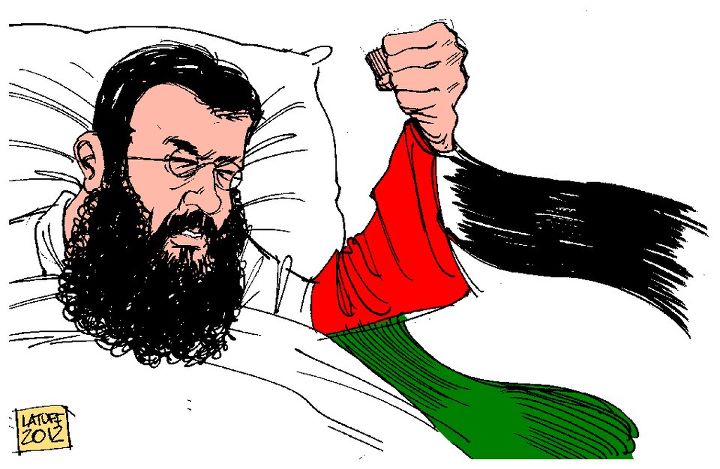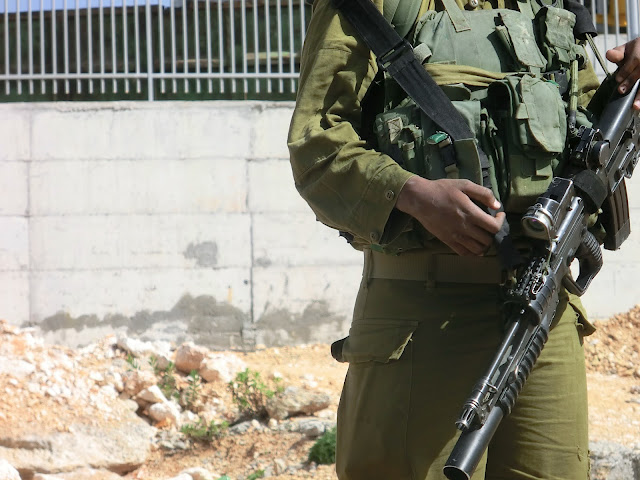-
URGENT: Heed Randa Adnan’s call. Military court rejects Khader Adnan’s appeal in de facto death sentence
13 February 2012 | Samidoun: Palestinian Prisoner Solidarity Network “My husband is dying inside an Israeli jail. The world should make sure I am able to see him,” she said. “And it should pressure the Israeli government to release him before it’s too late… Israel denied Khader any fairness or decency…But maybe the rest of […]
-
Bruqin avoids arrests: Planting hope for Khader Adnan
by Jonas Weber 13 February 2012 | International Solidarity Movement, West Bank Villagers of Bruqin and supporters went out today to plant trees in the field by the factory. While trees were planted alongside pictures of Khader Adnan, two young men sneaked over to the fence of the factory and put up Palestinian flags. In […]
-
Golani Brigade Report: Incidences involving the detention, intimidation, abuse, or arrest of children and youth.
13 February 2012 | International Solidarity Movement and Christian Peacemaker Teams Since the arrival of the Golani Brigade in Hebron on December 27th, international accompaniment organizations (Christian Peacemaker Teams, International Solidarity Movement, and others) have documented an increase in the number of serious human rights violations against the Palestinian people, particularly youth and children in […]
Action Alert An Nabi Saleh Apartheid Wall Arrests BDS Bethlehem Bil'in Cast Lead Demonstration Denial of Entry Ethnic Cleansing Farmers Gaza Global Actions Hebron House Demolition International law Israeli Army Jerusalem Live Ammunition Nablus Ni'lin Prisoner Ramallah Rubber-coated steel bullets Settlement Settlers Settler violence Tear-Gas Canister Video


